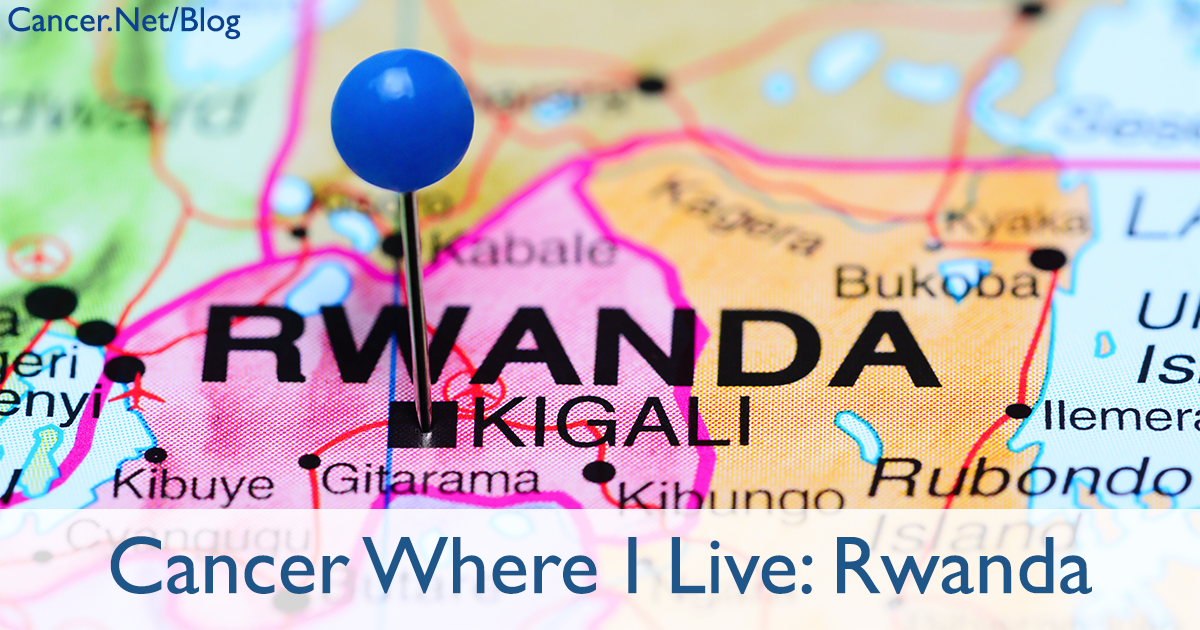
Cancer in My Community is a Cancer.Net Blog series that shows the global impact of cancer and how people work to care for those with cancer in their region. Fidel Rubagumya, MD, MMed, is a clinical and radiation oncologist at Rwanda Military Hospital in Kigali, Rwanda, and a lecturer at the University of Global Health Equity in rural Rwanda. Dr. Rubagumya is an enthusiastic cancer advocate. He has been involved in many cancer control activities in Rwanda and internationally. He is the founder of Rwanda Children’s Cancer Relief (RCCR), an organization that raises awareness on childhood cancers. You can follow him on Twitter.
Why I care for people with cancer
At a young age, I lost someone close to me due to cancer. From that time forward, all I knew was that I wanted to become a doctor, and when I became one, all I wanted to do was to treat people with cancer. In Rwanda, most patients come in with late-stage cancer, especially due to system delays. For some, treatment works very well, and for others, unfortunately, it does not. But whatever the results, I call it a privilege to take a journey with these resilient people. Whether it’s days, months, or years, there is a bond, trust, and friendship that is created between me and them. There are times I know that treatment won’t help, and in those cases, we opt for pure supportive care. Later on, I may get a text or call saying, “They have passed on, but we wanted to thank you for being with us throughout, even when we knew cancer would take their life.” I think everyone wants to have someone supporting them during their difficult moments. I am happy that I am that person for my patients, and to some—and hopefully many more in the future—we come out with a happier conclusion.
What cancer is like in Rwanda
Cervical cancer and breast cancer are the most common cancers in Rwanda, with stomach cancer and prostate cancer also increasing each year. Not long ago, the country had no chemotherapy or radiation therapy services, and there were no specialists to treat cancers. Now, over the past decade, the country has the capacity to diagnose and treat cancers at 2 cancer centers in the country, as well as at other hospitals within Rwanda. We recently published “State of Cancer Control in Rwanda: Past, Present, and Future Opportunities” in JCO Global Oncology, which details the challenges to cancer care in Rwanda and our more recent achievements.
The challenges people with cancer face in Rwanda
In Rwanda, you find that patients and survivors are stigmatized due to either the cancer itself or due to the effects of cancer treatment. For example, those who have undergone a mastectomy for treatment of breast cancer may get divorced or be abandoned. Patient and survivor support groups would be very important for people with cancer in Rwanda, but we lack enough of these in our country. Patients, caregivers, and survivors also have many questions at appointments that treating oncologists often do not have enough time to answer, as there are few oncologists in Rwanda and the number of patients is increasing. There are a few patients, survivors, and oncologists who write about cancer and their experiences in the local newspapers, but these are not enough to help educate the people in our country.
Where patients can find local resources and support in Rwanda
Unfortunately, there are not enough local resources where people with cancer can find information. There are few nonprofit organizations that are involved in helping provide more information about cancer, as is often done in other countries. Similar to the lack of available cancer information, there are also not many organizations that provide non-clinical support to people with cancer and survivors. This is a real challenge, and I hope that people will be encouraged to take up this challenge to help those with cancer in Rwanda.







